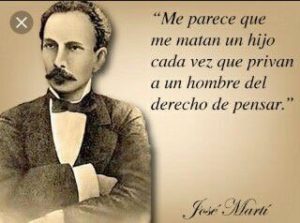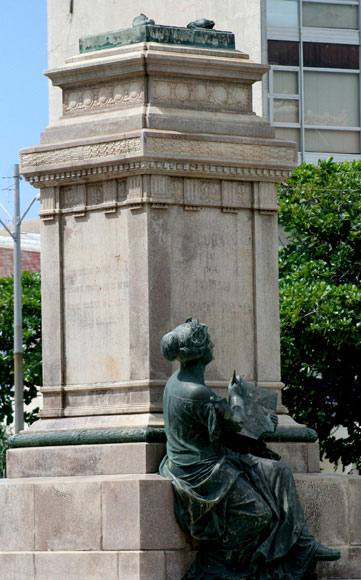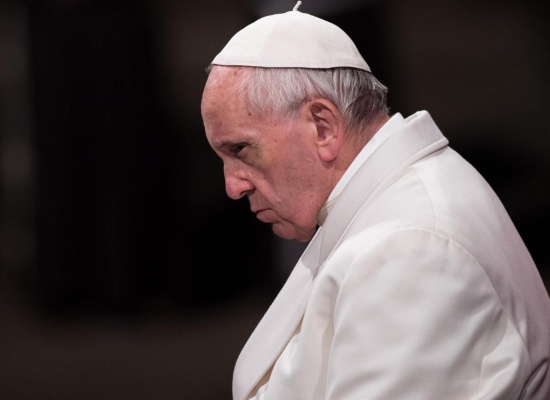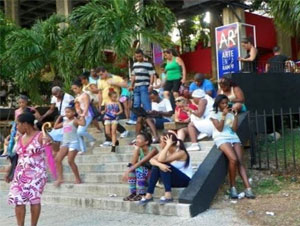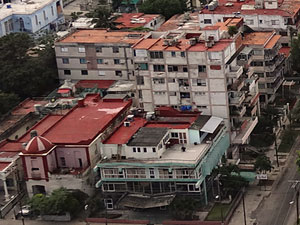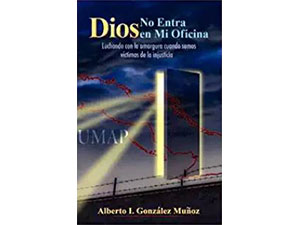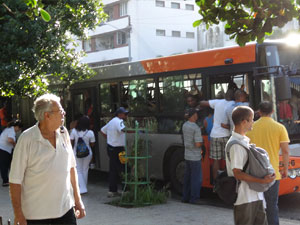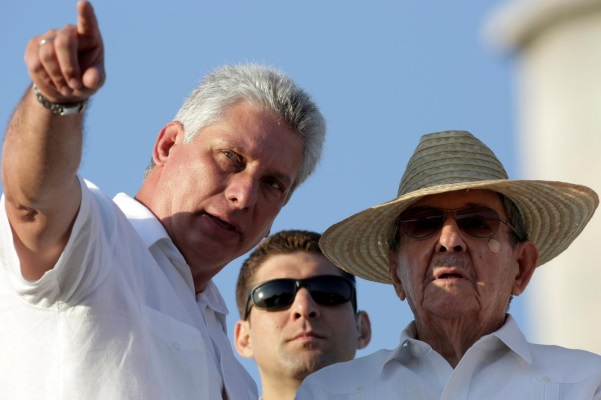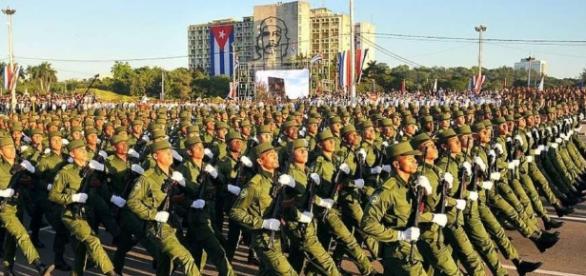Primavera Digital, Eduardo Martínez Rodríguez, Havana, 31 July 2017 — In the 1960s and even the 70s, the legitimacy of the system–despite its continuous economic fiascos and failure to achieve an adequate and genuinely Cuban social system–was acceptable for the hopeful lower classes, while the middle and upper classes were fleeing to Miami.
Fifty-eight years after the triumph of the Revolution and still under the same regime, we ask ourselves the same questions, and many more besides.
This system appears equitable in theory, but in practice (the evaluative test of truth) it has proven to be dysfunctional.
The government attempts to improve and change the system, but in practice, nothing improves and nothing changes.
Of what use has been the enormous propaganda expounded around the Economic Guidelines and the last two Congresses of the Communist Party? What changes have effectively improved the very precarious living standard of the Cuban people?
A foreigner might ask, “What is this man saying? What ‘very precarious living standard,’ when in fact they have government-guaranteed basic subsistence, free education, unbeatable social security, and enviable health care comparable to the best in the world?” He might think that I am a “mercenary on the imperialist payroll.” But whoever thinks this way does himself little favor. We shall speak of these matters…
The changes the government has made–to allow for a certain degree of self-employment in minute private businesses–improve the living standard of a few very determined entrepreneurs who, come hell or high water, are trying to earn incomes that will provide them a decent existence.
But these individuals are few and far between, and they have a difficult time of it, given the great number of erratic and disorganized regulations, the stress of inspectors and functionaries constantly hanging around demanding the expected and the unexpected, the high cost and difficulty of obtaining inputs, and the draconian taxes that must be paid to agencies that provide no type of security, facilities or guarantees for the work they supposedly regulate. And there is no wholesale market to lower prices and provide some assurance of supplies, preventing start-up merchants from snatching up all available materials needed by individuals.
Up until a few years ago, everything was guaranteed. You would work for the State until the age of 60, then retire with a little pension that would support you until death. Today, nothing is guaranteed. Nothing.
Of what use have been those vaunted “Guidelines”? We Cubans continue to live in poverty, on the lowest human scale.
The current situation of average Cubans–more than 90% of the population–is dire, literally unsustainable. The government knows this but does nothing to improve this situation, even though there exist the means and resources to do so, the methods and a trained labor force desirous of working for a suitable salary.
A redistribution of profits is needed, a clear and transparent accounting system, so that the citizens may know where every cent that we produce is invested: it is our right…
Readers will forgive the digression that follows, because regarding this subject, I find myself obligated to put forth concrete examples that could hurt the feelings of many.
One of my neighbors in Havana’s El Cerro neighborhood is an engineer who is now quite advanced in years. His wife was a professor. Both have been retired now for decades, with pensions of 200 Cuban pesos* (CUP) per month each. They have no children or other relatives. They were once faithful and honest functionaries, and members of the Cuban Communist Party (PCC).
The minimum cost of living is at about 2500 CUP (approx. 100 Cuban convertible pesos, CUC*) per month. With that sum one can acquire basic foodstuffs and medicines. Forget clothes and shoes, household appliances, home repairs, etc.
Both of these elderly people have to decide between what they will eat or what medicines they will buy when needed. In the not too distant future they will die and will not be counted in the national statistics as dead from starvation or lack of adequate medical care.
Last month, by way of the ration book, they bought the assigned amount of chicken, five eggs, and a half-pound of “soy ham” per person. This couple cannot acquire anything in CUC. Where is the protein in their diet? The fruits and vegetables they need?
In their prime, this aged couple were active members of this society and faithful followers of the PCC. Today, they do not officially exist. They will soon leave this earth and nobody will have done anything for them. They live in isolation, confined to their apartment during their last days.
This is how the majority of the aged survive. Many were faithful followers of Fidel who, at some point, renounced their emigrating relatives, took part in repudiation rallies and hurled eggs at those who were leaving, always applauded at the Plaza of the Revolution–even when their monthly ration of rice and sugar was reduced by a pound under the standard quota—and who trooped along in the Marches of the Combatant People, etc.
This permanent economic crisis and the astronomical inflation that the government maintains by force directly harms the elderly. There has been much official talk about helping them, taking care of them, but nothing has been done of any great scale. Old folks’ homes are extremely scarce. To enter one, you have to give up your pension to the State and, to get his or her attention, you have to give up your house to a functionary who decides if you will be admitted.
Lack of adequate medical care? How can that be?
My brother, generally healthy and very active, took ill a few days ago. He went to the doctor’s office on the second morning of a severe malaise, but on that day they were only seeing pregnant women. He was not seen. On the third day he returned to the office and the general practitioner, without so much as examining him, let alone taking his blood pressure or listening to his heart, among other basic check-ups, prescribed him analgesics. On the fourth day, still suffering the same complaints, but worsening, my brother visited the polyclinic and the doctor on duty was about to prescribe him something, without performing any examinations, blood work, urinalysis, etc. Nothing. My brother fled before the doctor could get a word out. He turned to a well-known cardiologist, who within in a nearby hospital discovered that he is a diabetic, and placed him under treatment.
Doctors find themselves constantly besieged everywhere by relatives, friends and acquaintances in search of at least basic medical attention, and this increases their workload tremendously, because desperate people are knocking on the doors of their homes at all hours.
It takes me a half hour to walk to the hospital where my wife works as a gynecologist. For her–who of course does not own a car–it takes two hours. She has to constantly stop to give street consultations to the persons who are impelled to seek her out because of the deficiencies of the health care system. She, with infinite patience, gives them her time and does the best she can.
Today, overburdened Cuban doctors are forced to economize, to employ a personal evaluative scale by observation before utilizing expendable or electronic resources that might be costly to the State. This is per training by the Ministry of Public Health. Where do they put the more than $8-billion earned by our foreign medical missions?
In the pharmacies, no antacids, anti-fungals, anti-allergens, potent analgesics, antibiotics, etc. can be found. There is practically nothing there except for medicinal syrups concocted from traditional herbal recipes. Even aspirin is scarce. Notwithstanding, many powerful medicines, some of Cuban manufacture, are sold on the black market at exorbitant prices.
In the poorly provisioned hospitals, to gain admittance is quite difficult, albeit free. For a surgical operation one needs a miracle or a friend.
When a patient is admitted, he or she must bring bedclothes, food, fans, drinking water, etc., and–in light of the devastating shortage of nurses–someone must remain with the patient to ensure the timely administration of treatment and medications. Upon release from the hospital, if the patient does not slip 10 CUC to the ambulance drivers, there is a wait of three days for the ambulance service from the hospital, or else one must rely on expensive private taxis.
Have we spoken of the enormous waiting lists for operations? The sick must wait weeks, months, years, and then die because the operating rooms are never available due to advanced deterioration, or lack of bedding, anesthesiologists, water or surgical sutures.
Is this the celebrated medical service?
Everything I refer to here is demonstrable. One only needs to visit a hospital as a patient.
But the rulers always have some luxury tour planned out for the gullible or those who want to believe.
Today in our society can be seen sharp differences between a rarefied group of enriched government bureaucrats (along with a few successful miscreants) and the overwhelming majority of the people.
There are excellent neighborhoods such as Nuevo Vedado, Miramar, Siboney, Atabey, and some other area along the periphery of Havana such as Fontanar, etc., where these personages somehow finagle (there is always something murky about these transactions) grand mansions, practically all built in the 1950s, as this is the only architectural era on which one can rely for elegance and style.
There is a law on the books, of which little is said, which imposes space limitations on permits for new construction. That law refers to modest dwellings of just a few square meters per inhabitant.
Near my house, a functionary who drives an enormous Mercedes has built a residence of nearly 1000 sq. ft., utilizing a private work force. With the blocks and cement they have used just on the surrounding wall, a modest apartment house could be built.
No argument here against big mansions. The problem is when its occupants sharply preach all that about “do as I say, not as I do.”
At this time, the government appears to be in a profound financial crisis. It hardly exports anything, tourism has not increased as predicted, and the price of petroleum is still low (thanks to Venezuela). All that’s left are the scarce products of our pharmaceutical manufacturing, biotechnology and the export of human capital to the detriment of our already precarious internal services.
There are shortages of supplies to the CUC stores, and delayed and even more scarce stocks of regular and subsidized foodstuffs.
What will low-income people, the aged, eat when there are no more provisions to be had through the ration book?
There are markets for fresh agricultural products and pork and lamb, but their prices continue to rise unabated. For example, at the peak of the harvest season, a pound of tomatoes or onions costs 10 to 15 Cuban pesos, which is more than a worker makes in one day, and let’s not even speak of pork, which costs 35 Cuban pesos per pound.
If the government is trying to gain access to the bank credits of major world markets to salvage at least one part of the socialist economy, it will find itself forced to cut back on all types of services to the population, and even if not, they will continue to deteriorate. And we are well past the times of Marches of the Combatant peoples, of military slogans and harangues.
Still, this government has nine lives. In the 1960s, the Soviets bailed it out. Later, Hugo Chávez came on the scene to rescue it. Today, as Chavismo is mired in problems, the help will come from whom we least expected it.
Will the regime accept the political and social cost of a massive infusion of North American investments? Hopefully it will, because I’m dying to eat a double Big Mac and wash it down with a liter of Coca-Cola on the corner of Malecon and 23rd.
Really, the Castros have never cared about the people’s calamitous situation. What they care about is the State, their State, the one they hope will survive them, so that they will not find themselves as defendants in a Cuban version of the Nuremberg Trials.
eduardo57@nauta.cu
Translator’s Notes:
*Cuba has two currencies: Cuban pesos, worth about 4 cents US, and Cuban Convertible pesos, each worth 25 Cuban pesos, or about one dollar US. It has been a longstanding, but as yet unfulfilled, promise of the government to move to a single currency.
Translated By: Alicia Barraqué Ellison

![]() EFE, via 14ymedio, Miami, 7 June 2018 — The Cuban Resistance Assembly kicked off in Miami a new media campaign, No Colabores [“Do Not Collaborate”] against cruise-ship trips to Cuba and insisted on no support of tourism to the Island because it “directly finances the repression” of the opposition.
EFE, via 14ymedio, Miami, 7 June 2018 — The Cuban Resistance Assembly kicked off in Miami a new media campaign, No Colabores [“Do Not Collaborate”] against cruise-ship trips to Cuba and insisted on no support of tourism to the Island because it “directly finances the repression” of the opposition.



